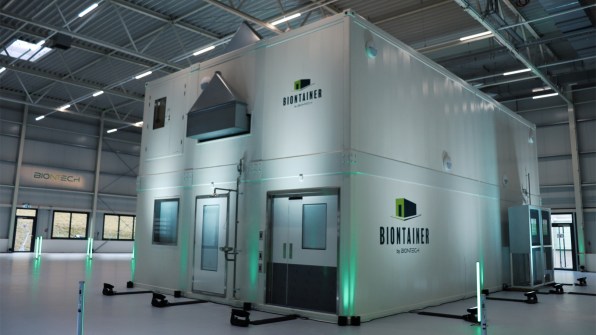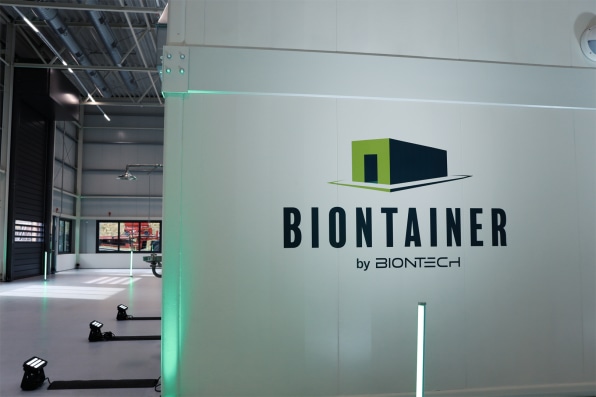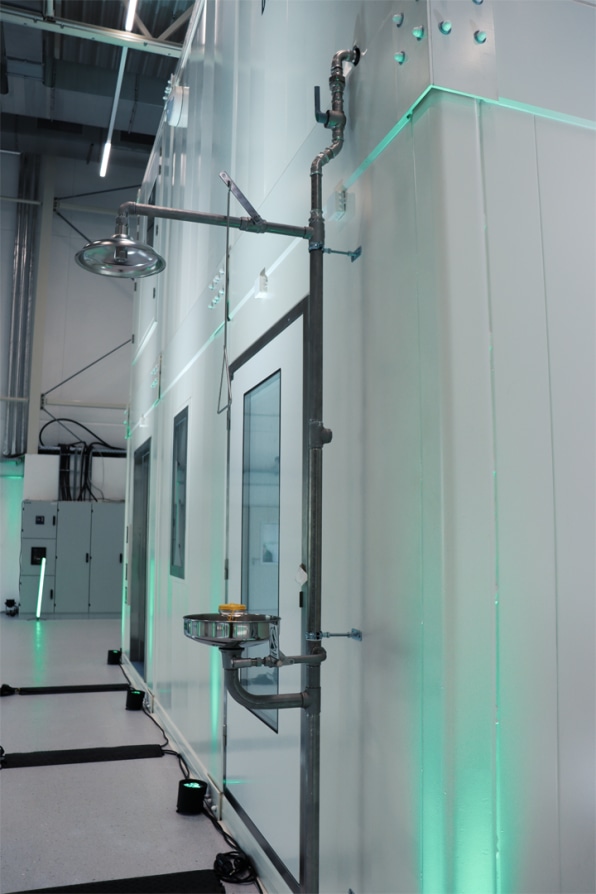In Africa, access to COVID-19 vaccines has been limited. BioNTech’s mobile factory could help ramp up production—but critics argue the company could also share its technology so that developing countries can manufacture their own vaccines as soon as possible.

In Germany, a factory that churns out millions of doses a week of the BioNTech-Pfizer COVID-19 vaccine takes up multiple stories and nearly 20,000 square feet. In Michigan, the Pfizer plant is even larger. But BioNTech’s new design for a mobile vaccine factory will be built in shipping container-size units so that it can easily be delivered around the world for local production—beginning with a factory that will be sent to Africa later this year, which will make vaccines for the continent at a not-for-profit price.
It’s one small step to help ramp up vaccine production in Africa, where for decades only 1% of vaccines have been manufactured locally. When the first COVID-19 vaccines were developed, African countries were at the back of the line. Even now, as more doses of vaccines are available, only 14% of residents of Ghana have been fully vaccinated, versus, say, Portugal, where 90% are fully vaccinated. The challenge affects everyone, since low levels of vaccination in developing countries mean that new variants can develop and spread more easily around the globe.



Manufacturing isn’t expected to begin until 12 months after the first factory modules arrive later this year. Doctors Without Borders says that it has identified 120 existing factories in developing countries that could begin production within months if BioNTech or Moderna shared their technology. That technology transfer is complex—it’s not as simple as handing over a formula. But pharma companies were able to quickly work with contract manufacturers in Europe and could do the same elsewhere.
Because vaccine developers got government funding to produce COVID-19 vaccines—Moderna, in particular, got both billions of dollars from U.S. taxpayers and direct support from scientists at the National Institutes of Health, who had been in a dispute with Moderna over joint patent rights—there’s a strong argument that the technology should be shared for the public good.
By the next pandemic, things may play out differently. In South Africa, the World Health Organization is launching a new mRNA hub that will be able to develop and mass produce vaccines, and share the technology and train labs in other countries that need assistance. Researchers at a South African biotech company, the R&D partner of the new hub, have already successfully copied the Moderna vaccine with the aim of sharing the tech, though it will take time to scale it up, run trials, and get approval.
“It will take years until this vaccine is coming to market,” Dovivat says. “We’re in a global pandemic, and it could just happen faster.” She still has hope, she says, that BioNTech and other current vaccine developers will share their technology.
"Factory" - Google News
February 18, 2022 at 07:00PM
https://ift.tt/8uZ7L2o
This mobile shipping container factory will make BioNTech COVID-19 vaccines in Africa - Fast Company
"Factory" - Google News
https://ift.tt/rGs85v0
Shoes Man Tutorial
Pos News Update
Meme Update
Korean Entertainment News
Japan News Update
Bagikan Berita Ini














0 Response to "This mobile shipping container factory will make BioNTech COVID-19 vaccines in Africa - Fast Company"
Post a Comment